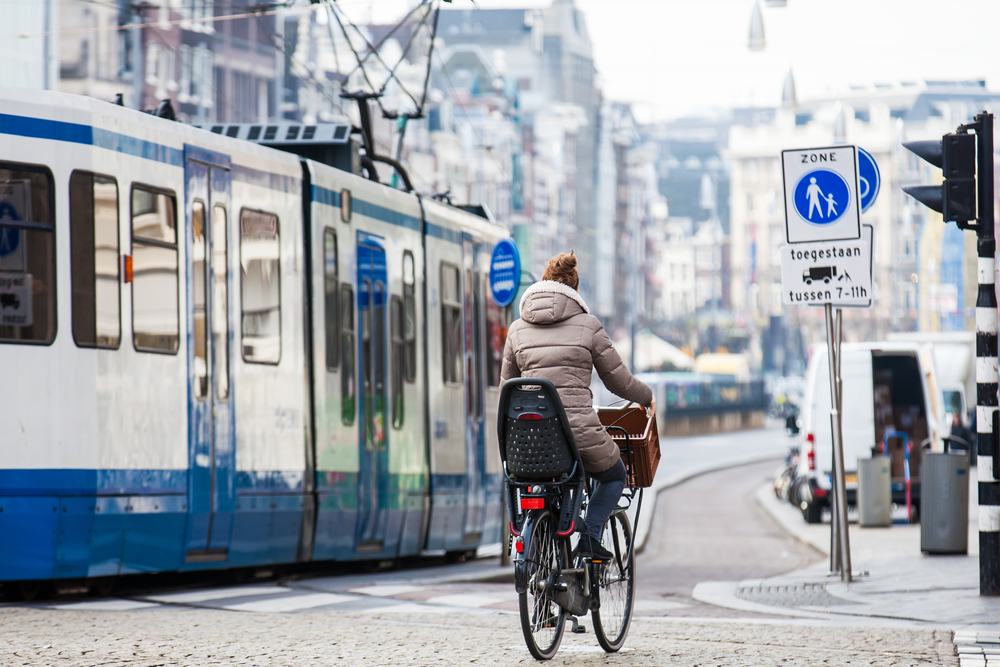The Dutch are crazy about a lot of things, like splitting the bill or eating chocolate sprinkles for breakfast. But their one true love is time — and making sure they’re always on it. ⌚
After more than a few years in the Netherlands, people expect certain things from you: like not complaining about the weather anymore, being able to do your groceries in Dutch, and drinking karnemelk (buttermilk) at lunch like it is the most normal thing in the world (WHERE IS MY WATER?!). 🥛
READ MORE | 12 realisations every expat in the Netherlands can relate to
But most importantly, Dutchies expect you to pay close attention to the time! As they say: early is on time, on time is late, and late is a disgrace.
Dutch language and time: a love story
After learning the basics of the Dutch language and its culture, something strikes you: the language itself shows their love for punctuality.

“Save the date” is a way of living and talking — everything can be accomplished if tackled in time.
READ MORE | An expat’s guide to learning Dutch
Here are 3 Dutch language constructions about time that continue to amaze me:
1. How late is it?
The Dutch phrase for saying “What time is it?” is Hoe laat is het? (How late is it?).
Basically, when they’re asking for the time, they’re assuming that they are already late. 🙄

In general, asking “how late is it?”, instead of “what time is it?”, gives off the vibe that you’re getting ready to leave, go to bed, or simply that you’re a little anxious about being late for something.
Relax, Dutchies!
2. Telling the time by looking at the future
The way you answer that question is also kind of perverse. Dutch people always look at the future.
For example, 11:30 is not “half-past eleven” or “half eleven” but half twaalf (half twelve). As in: you’re already rushing for the next hour. 🏃🏼♂️

Even more of a rhetorical masterpiece, however, is with the forthcoming minutes: 8:20, for example, is tien voor half negen, or “ten minutes before half nine”.
By the time you’ve calculated this in your head, you’re probably late — again.
3. Time is one of the first elements in a Dutch sentence
As you proudly build your Dutch sentence, the “when” of the action happening always comes before where, how, what, and with whom.
Ik moet morgen werken met Sander op kantoor (lit. I have tomorrow to work with Sander at the office).
The time follows the subject Ik (I) and the auxiliary verb moet (must) but precedes the main verb werken (work) and the rest of the sentence.

The basic structure of a Dutch sentence is: Subject — Finite verb — Time — Manner — Place — Other verb(s). Time is simply just too important to be left for later. 🤷🏼♀️
Conclusion: a healthy relationship with time comes with a fast-paced mindset. And the Dutch language has adapted wonderfully to this!
Are the Dutchies obsessed with time, or are the rest of us just sloppy? Tell us your thoughts in the comments!

My Dutch mom, last name Snel (fast), always if you’re not early you are late!
I meant she “always says”
[…] The Dutch and Time: 3 ways the Dutch language shows they are planning maniacs […]
[…] Time is valuable for anyone! Like we’ve mentioned before, Dutchies are always pro-honesty and that effects their flirting style as well. That’s why Dutch women and men find it a waste of time to sugar-coat everything and showering everyone with half-fake compliments. So, don’t get discouraged cause your date is not complimenting your every treat. […]
There is nothing that annoys me, is not starting a meeting on time. It seems that you cannot start a meeting until every one is there.
Anything or anyone over 4 minutes late gets me into a small fit. ? Guess it really is a Dutch thing.
Now kisses Peggy Carter
Hurry when you have time, so you have time when you are in a hurry.
Check yourself
We are south african and speak Afrikaans and we use the same time language as the dutch 😀